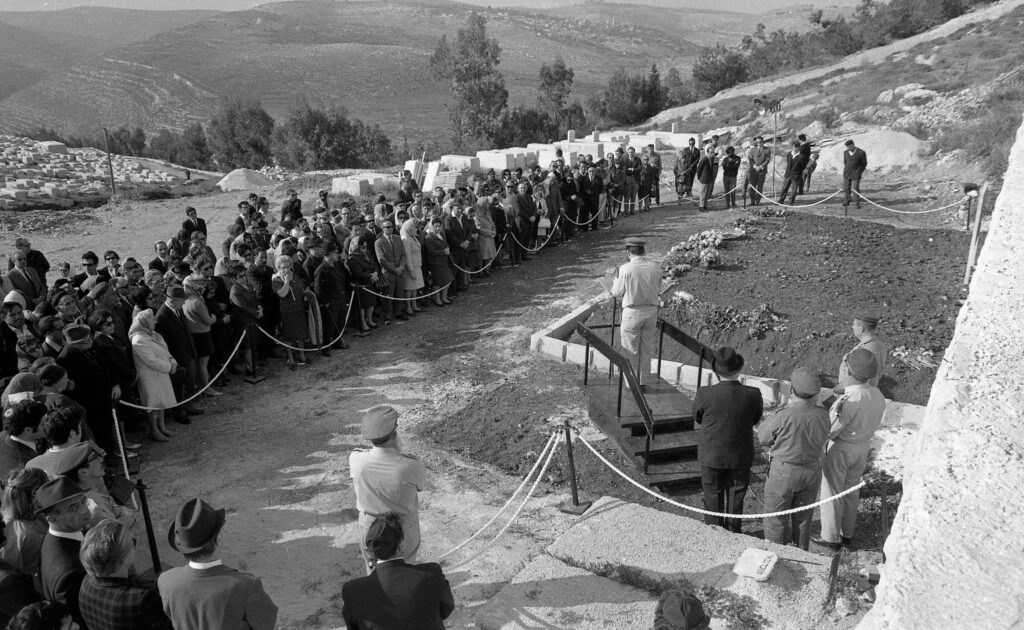August 14, 1910
Natan Alterman, a poet, journalist, translator, author and playwright, is born in Warsaw.
He moves to Tel Aviv with his family in 1925. He studies agriculture in France and briefly works at the Mikveh Israel agricultural school in 1932 but soon devotes himself to writing. He publishes his first book of poetry, “Stars Outside,” in 1938 and establishes himself as an important voice in Hebrew literature. His second book, “The Joy of the Poor” in 1941, is considered his masterpiece and consists of 31 connected poems from the perspective of a ghost obsessed with his widow. Politics and current events inspire some of his poems over the years, including work responding to the Holocaust and to Israel’s War of Independence. One of those poems, “The Silver Platter,” is a standard reading on Yom HaZikaron, Israel’s Memorial Day.
He writes the lyrics to the Moshe Vilenski song “Kalaniyot,” a pre-state classic sung by Shoshana Damari. He also translates Shakespeare, Moliere, Racine and others into Hebrew and Yiddish.
Much of Alterman’s political work appears in his weekly column for the labor movement newspaper Davar. Although he never holds political office, Alterman is influential in socialist Zionist politics before and after the establishment of the state of Israel. During the 1950s he criticizes the imposition of martial law on Arab citizens and advocates workers’ causes, such as a maritime strike in 1952. But after the June 1967 war, he helps launch the Movement for Greater Israel, joining former political foes on the right in arguing for keeping the captured territory.
Alterman is awarded the Bialik Prize in 1957 and the Israel Prize for literature in 1968. He dies in March 1970 in Tel Aviv at age 59. Israel begins printing 200-shekel notes with his portrait in 2016.









